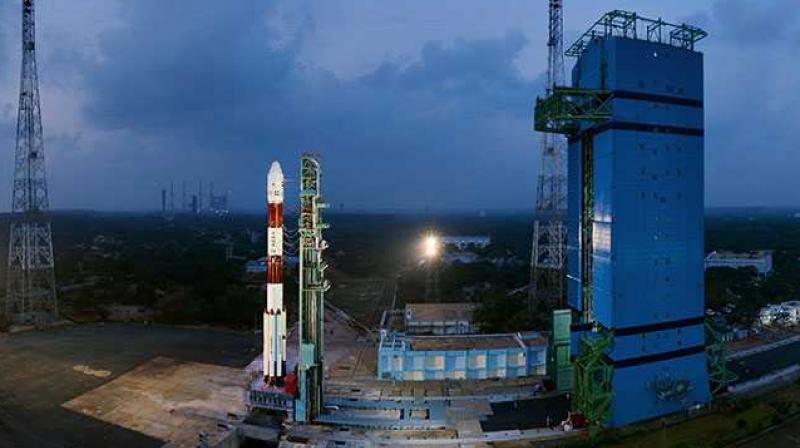SRIHARIKOTA (AP): India today successfully launched weather observation satellite Cartosat 2 Series and 29 other spacecraft onboard its dependable Polar rocket from here.
The successful orbiting of the satellites by the Polar Satellite Launch Vehicle PSLV C-40 comes four months after the Indian space Research Organisation’s mission to launch backup navigation spacecraft IRNSS-1H onboard PSLV-39 ended in a rare failure.
A jubilant ISRO Chairman A S Kiran Kumar announced that the Cartosat 2 Series satellite, the seventh in the series, a nano satellite and 28 commercial payloads were successfully injected into the orbit one by one by the PSLV C-40, in the space of about 17.33 minutes since lift-off.
A micro satellite of India would be orbited after about 90 minutes following the re-ignition of the fourth stage, Kumar said.
International customer satellites are three micro and 25 nano-satellites from six countries — Canada, Finland, France, Korea, the United Kingdom and the United States of America.
Earlier, at the end of the 28-hours countdown, the 44.4 metre tall PSLV-C40 in its 42nd flight, lifted off at 9.29 am and soared into a cloudy sky from the first launch pad.
The opening mission of 2018 was considered crucial for ISRO as the previous PSLV launch came as a setback to scientists as the backup navigation satellite IRNSS-1H could not be placed in orbit following a snag in the final leg of the PSLV-C39 mission in August last year.
The heat shield of the rocket did not separate in the final leg of the launch sequence, trapping the satellite in the fourth stage of the rocket.
A visibly relieved Kiran Kumar, on his final mission as the chief of the space agency, said he was happy to provide Cartosat 2 Series as a New Year gift for the country.
“ISRO is starting 2018 with the successful launch… All customer satellites (besides Cartosat and nanosat) released and the microast after one hour. So far Cartosat performance is satisfactory,” he said at the mission control room.
Referring to the previous launch, he said it had heat shield problem and an ISRO committee had addressed it and taken steps to ensure the vehicle was ‘robust’. (agencies)


